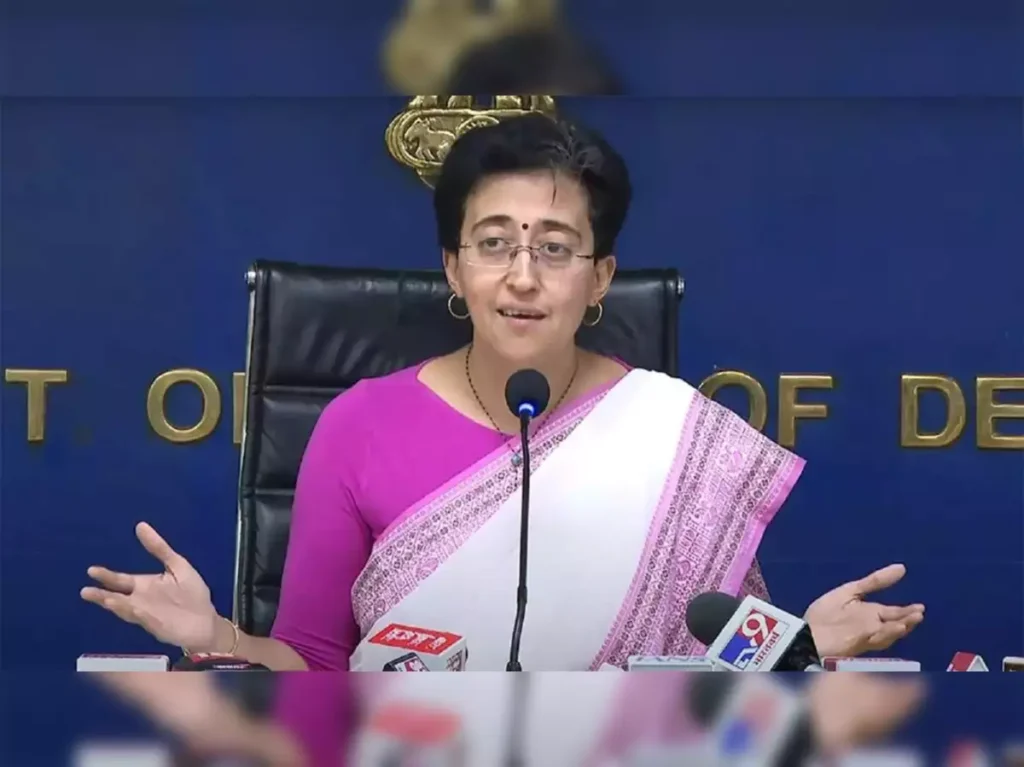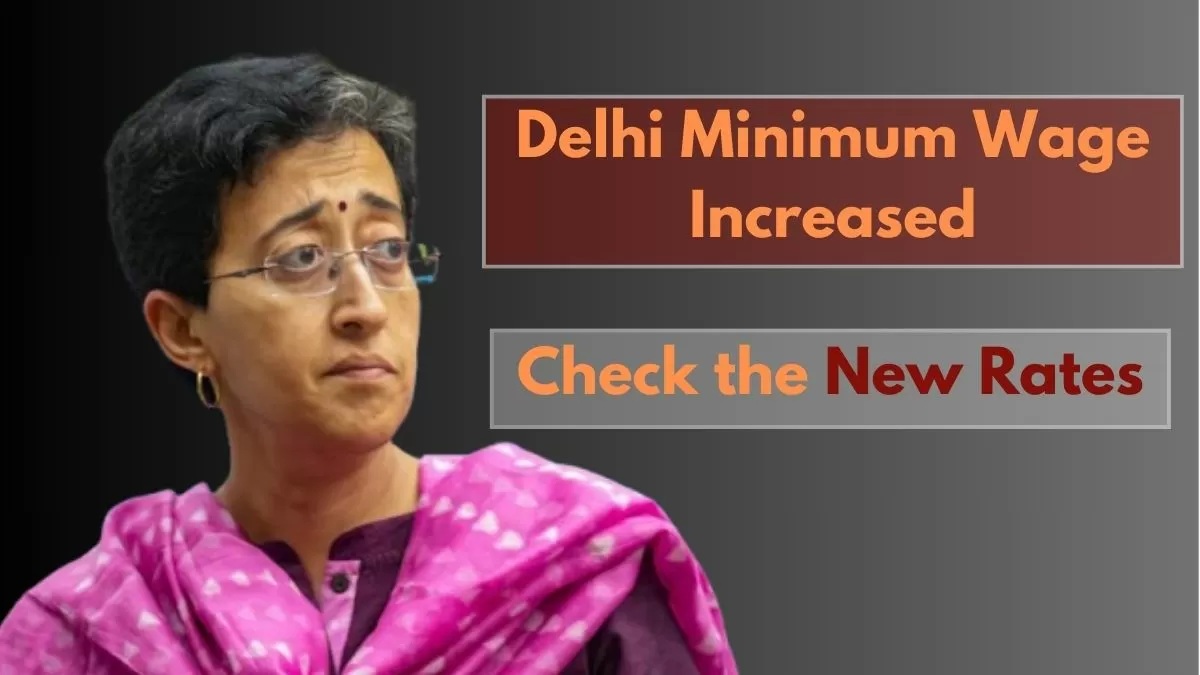Delhi Government Increases Minimum Wages for Workers
The Delhi government has recently announced an increase in the minimum wages for workers, aimed at improving the livelihoods of daily wage earners and other employees in the capital city. This decision is expected to positively impact various categories of workers including unskilled, semi-skilled, skilled, and other workers employed in diverse sectors across Delhi.
New Wage Structure for Different Categories
The revised wage structure, which comes into effect immediately, categorizes workers into three major classifications – unskilled, semi-skilled, and skilled. The minimum wage for unskilled laborers has been increased to ₹16,792 per month. Semi-skilled workers will now receive a minimum of ₹18,499 per month, while skilled workers’ wages have been raised to ₹20,357 per month. These hikes have been implemented to align wages with rising inflation and the cost of living in Delhi.
Focus on Inflation and Economic Stability
One of the driving factors behind this decision was the need to combat the increasing inflation rate in the country. The new wages will ensure that workers can cope with the rising prices of essential commodities and services. With the inflation index playing a key role, this wage increase aims to provide some economic stability to the working class in Delhi, especially amid the growing financial challenges.
Ensuring Workers’ Rights
The Delhi government has always been a vocal advocate for workers’ rights. This wage hike is another step in safeguarding the basic rights of workers, ensuring that they are not underpaid and receive fair compensation for their labor. With this increase, the government aims to uplift the living standards of workers, particularly in the informal sector, who are most vulnerable to economic fluctuations.
Impact on the Workforce and Economy
This wage hike will directly benefit millions of workers employed across various sectors in Delhi, ranging from construction and manufacturing to domestic and service industries. As workers see a boost in their income, the ripple effect will likely increase consumption, thereby contributing to the overall economic growth of the state.

Why This News is Important
Improving Livelihoods of Workers
The increase in minimum wages is crucial for enhancing the economic security of workers. By providing higher wages, the Delhi government is addressing the financial needs of low-income groups, ensuring that they can lead a dignified life despite the rising inflation and cost of living.
Contributing to Economic Stability
The hike in minimum wages will help stabilize the local economy. Higher wages typically result in increased consumer spending, which can lead to greater demand for goods and services. This can stimulate growth in local businesses and industries, further promoting Delhi’s economic development.
Setting a Precedent for Other States
This move sets an example for other states to follow suit. With Delhi leading the way, other states may also consider revising their wage structures in light of inflation and the economic difficulties faced by workers. This can lead to a national-level conversation about fair wages and workers’ rights.
Historical Context
Previous Minimum Wage Revisions in Delhi
The Delhi government has a history of periodically increasing minimum wages in response to inflation and rising living costs. In previous years, the government has consistently revised wage rates to match the economic situation. The most significant revision prior to this one was in 2020, when the government increased wages to help workers cope with the economic impact of the COVID-19 pandemic.
Role of Inflation and Economic Pressures
India has been grappling with inflation in recent years, which has had a direct impact on the purchasing power of workers, especially in metro cities like Delhi. The minimum wage revisions are seen as a necessary step to safeguard the financial interests of the working class, particularly in times of economic stress. The linkage between inflation and wage adjustments has long been recognized as an essential factor in ensuring equitable pay for labor.
Labor Laws and Workers’ Rights in India
India’s labor laws, particularly the Minimum Wages Act of 1948, set the foundation for ensuring that workers receive fair compensation for their labor. Over the decades, several governments have made periodic amendments and revisions to align wages with contemporary economic realities. The Delhi government’s recent wage hike continues this tradition of updating labor compensation to reflect current socio-economic conditions.
Key Takeaways from the “Delhi Government Increases Minimum Wages for Workers”
| S.No | Key Takeaway |
|---|---|
| 1 | Delhi government has increased the minimum wages for unskilled, semi-skilled, and skilled workers. |
| 2 | The new wages are ₹16,792 for unskilled workers, ₹18,499 for semi-skilled workers, and ₹20,357 for skilled workers per month. |
| 3 | This wage hike is aimed at combating inflation and improving the livelihoods of workers in Delhi. |
| 4 | The increase in wages will benefit millions of workers employed in various sectors across Delhi. |
| 5 | This move sets an example for other states to consider similar wage revisions in response to inflation. |
Important FAQs for Students from this News
What is the minimum wage for unskilled workers in Delhi after the recent hike?
- The minimum wage for unskilled workers in Delhi has been increased to ₹16,792 per month.
Who will benefit from the minimum wage hike announced by the Delhi government?
- The wage hike will benefit unskilled, semi-skilled, and skilled workers across various sectors in Delhi.
Why did the Delhi government increase the minimum wages?
- The government increased the wages to help workers cope with inflation and the rising cost of living in Delhi.
How much has the minimum wage for semi-skilled workers been raised to?
- The minimum wage for semi-skilled workers has been raised to ₹18,499 per month.
How does this wage hike impact the economy?
- The wage hike will increase workers’ purchasing power, which can boost demand for goods and services, contributing to the economic growth of Delhi.
Some Important Current Affairs Links

















